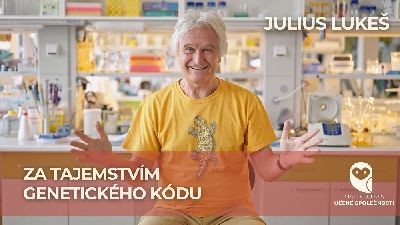09.11.2010
Paldus Josef
Prof., RNDr., DrSc., FRSC
Born November 25, 1935 in Bzí, District of Jablonec n/N, † January 15, 2023
- Honorary member of Learned Society since 1995
Educational and professional preparation:
- 1953, graduate, academic secondary school, Liberec;
- 1953-1958, Faculty of Mathematics and Physics, Charles University (FMP CU);
- 1958, RNDr. FMP CU;
- 1961, CSc. Institute of Physical Chemistry, Czechoslovak Academy of Sciences (IPC CSAS);
- 1995, DrSc. FMP CU;
- 1962-1964, Post-doctoral Fellow, Division of Pure Physics, National Research Council of Canada (NRCC).
Employment and academic positions:
- 1961-1962, 1964-1965, 1966-1968, Scientist, IPC CSAS;
- 1966, 1968 Visiting Scientist, NRCC;
- 1968-1975, Associate Professor;
- 1975-2001, Full Professor, Department of Applied Mathematics, Department of Chemistry and Guelph-Waterloo Centre for Graduate Work in Chemistry, Waterloo Campus, University of Waterloo;
- 2001-present, Distinguished Professor Emeritus
Visiting professorships:
1973, Université de Reims (France); 1975-1976, 1982-1983, Université Louis Pasteur, Strasbourg (France); 1981, Katholieke Universiteit, Nijmegen (Netherlands); 1981, Freie Universität, Berlin (Germany); 1983, Technion, Haifa (Israel); 1997, Universitat Jaume I, Castelló (Spain); 1984-present, Adjunct Professor, University of Florida, Gainesvi11e, Florida (USA)
Positions in Canada:
1978-1980, Associate Dean for post-graduate studies, University of Waterloo; 1991-1994, Associate Director and 1991-96, Member, Board of Directors and Council, Fields Institute for Research in Mathematical Sciences; 1990-1993, Chemistry Selection Committee, Royal Society of Chemistry and Rutherford Medal Awards Committee; 1992-1993, Natural Sciences and Engineering Research Council (NSERC) Grant Selection Committee (Applied Mathematics).
Membership and positions in international organizations and societies:
- 1981, Corresponding Member, European Academy of Sciences, Arts and Letters, Paris
- 1983, Fellow of the Royal Society of Canada
- 1984, Member of the International Academy of Quantum Molecular Science
- 1990, Board of Directors, International Society for Theoretical Chemical Physics Editorial (E) and Advisory Editorial (AE) Boards:
- 1977-1988, (AE) International Journal of Quantum Chemistry
- 1981-1983, (E) Applied Quantum Theory, Comtex Scientific, New York, USA
- 1986, (AE) Advances in Quantum Chemistry, Academic Press, New York, USA
- 1987-1989, (E) Journal of Chemical Physics, American Institute of Physics
- 1987-1993, (AE) Theoretica Chimica Acta, Springer Verlag, New York, Berlin
- 1989, (AE) Journal of Mathematical Chemistry, Kluwer Academic
- 1994-1997, (E) Canadian Journal of Chemistry
- 1996, (E) International Journal of Quantum Chemistry Societies
- 1977, American Physical Society
- 1982, Canadian Applied Mathematics Society
- 1989-2002, Canadian Chemical Society
Notable awards:
- 1962, 1967, Award, Chemical Department, CSAS
- 1983, Fellow, Royal Canadian Society and Academy of Sciences
- 1985, Elected member, International Academy of Quantum Molecular Science
- 1986-1987, Fellow, Wissenschaftskolleg zu Berlin (Institute for Advanced Study)
- 1987-1989, Killam Research Fellow
- 1992, J. Heyrovský Gold Medal, CSAS
- 1994, Gold Medal, Comenius University, Bratislava
- 1996 Alexander von Humboldt Senior Scientist Award
- 2001, Journal of Molecular Structure special issue (volume 547) honouring his 65th birthday
- 2002, Fellow, Fields Institute for Research in Mathematical Sciences
Selected publications:
- J. Paldus, D. A. Ramsay: The 4550 A band system of glyoxal. 1. Rotational analyses of the (0,0) bands for C2H2O2, C2HDO2, and C2D2O2. Can. J. Phys. 45, 1389 (1967)
- J. Paldus, J. Čížek, 1. Shavitt: Correlation problems in atomic and molecular systems. IV. Extended coupled-pair many-electron theory and its application to the BH3 molecule. Phys. Rev. A 5, 50 (1972)
- J. Paldus: Group theoretical approach to the configuration interaction and perturbation theory calculations of atomic and molecular systems. J. Chem. Phys. 61, 5321 (1974)
- J. Paldus, J. Čížek: Time-independent diagrammatic approach to perturbation theory of fermion systems. Advan. Quantum Chem. 9, 105 (1975)
- J. Paldus: Many-electron correlation problem: A group theoretical approach. In: Advances and Perspectives, Vol. 2, Academic Press 1976, pp 131-290
- J. Paldus, C. R. Sarma: Clifford algebra unitary group approach to many-electron correlation problem. J. Chem. Phys. 83, 5135 (1985)
- M. D. Gould, J. Paldus: Spin-dependent unitary group approach. 1. General formalism. J. Chem. Phys. 92, 7394 (1990)
- X. Li, J. Paldus: Automation of the implementation of spin-adapted open-shell coupled-cluster theories relying on the unitary group formalism. J. Chem. Phys. 101, 8812 (1994)
- J. Paldus, X. Li: A critical assessment of coupled-cluster method in quantum chemistry. Advan. Chem. Phys. 110, 1 (1999)
- X. Li, J. Paldus: General-model-space state-universal coupled-cluster theory. Connectivity conditions and explicit equations. J. Chem. Phys. 119, 5320 (2003)
Masterclass Učené společnosti
přednášky pro středoškoláky a širokou veřejnost prezentované jak naživo, tak online
Julius Lukeš: Za tajemstvím genetického kódu
Petr Slavíček: Co dal vědě exkrement?

.jpg)